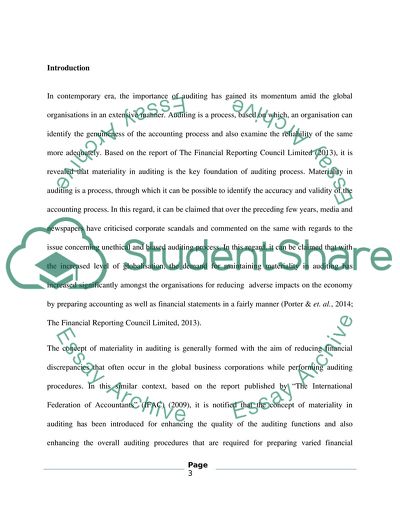Cite this document
(Materiality in Auditing Assignment Example | Topics and Well Written Essays - 1750 words, n.d.)
Materiality in Auditing Assignment Example | Topics and Well Written Essays - 1750 words. https://studentshare.org/finance-accounting/1854227-materiality-in-auditing
Materiality in Auditing Assignment Example | Topics and Well Written Essays - 1750 words. https://studentshare.org/finance-accounting/1854227-materiality-in-auditing
(Materiality in Auditing Assignment Example | Topics and Well Written Essays - 1750 Words)
Materiality in Auditing Assignment Example | Topics and Well Written Essays - 1750 Words. https://studentshare.org/finance-accounting/1854227-materiality-in-auditing.
Materiality in Auditing Assignment Example | Topics and Well Written Essays - 1750 Words. https://studentshare.org/finance-accounting/1854227-materiality-in-auditing.
“Materiality in Auditing Assignment Example | Topics and Well Written Essays - 1750 Words”. https://studentshare.org/finance-accounting/1854227-materiality-in-auditing.


